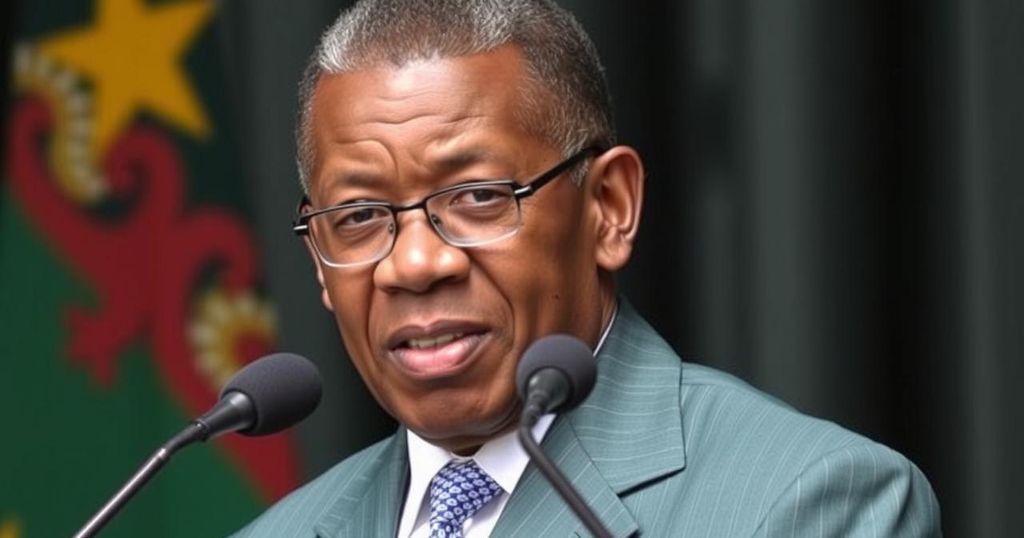Zambia’s Constitutional Court Bars Ex-President Edgar Lungu from 2026 Election

Zambia’s Constitutional Court has ruled that former President Edgar Lungu is ineligible to run for reelection in 2026, having already served the maximum two terms allowed by law. Despite his arguments suggesting otherwise, the court reaffirmed that he cannot contest again. The ruling is perceived as a step towards ensuring a fair electoral process in Zambia.
In a recent judgment, Zambia’s Constitutional Court has prohibited former President Edgar Lungu from participating as a candidate in the 2026 elections. The ruling, which unanimously establishes that Lungu has already served the constitutional maximum of two terms, stated that Lungu, who was first elected in January 2015 to complete the remainder of his predecessor’s term, is ineligible to seek re-election. Previously, Lungu had contested that his initial term should not be counted due to its incomplete nature, but the court firmly rejected this assertion, thereby overturning an earlier decision that had rendered him eligible for the 2021 elections.
Lungu’s political prospects were further complicated when the opposition alliance recently nominated him to run against the current President Hakainde Hichilema. Following a series of political maneuvers, which included the government’s withdrawal of Lungu’s retirement benefits, this decision showcased the former president’s attempt to reinvigorate his political presence. Additionally, his public engagements, including jogging with supporters, were deemed “political activism” by law enforcement, reflecting the contentious nature of his return to politics.
The ruling has been welcomed by the Zambian government, signifying a crucial step toward ensuring electoral integrity. Attorney General Mulilo Kabesha highlighted that the court’s decision delivers clarity for citizens and reinforces the prospects for upcoming elections to be fair and competitive. This ruling unfolds against the backdrop of Zambia’s constitutional amendments, which have redefined the line of succession in the event of a president’s death, a change instituted after Lungu ascended to office following the death of President Michael Sata in October 2014.
The legal landscape surrounding Zambia’s electoral process has witnessed significant developments, particularly concerning the presidential candidacy of former leaders. Edgar Lungu, who held office twice, was first elected under the constitution that limits presidents to two terms. The tensions arising from Lungu’s potential candidacy have been exacerbated by recent alterations to his privileges and economic support post-presidency, alongside governmental actions that have been perceived as politically motivated dismissals within the judiciary. Zambia’s struggle to balance democratic processes with legal interpretations has implications for its political stability and public confidence in governance.
The Constitutional Court’s decisive ruling effectively bars Edgar Lungu from seeking a third term in the forthcoming elections, reaffirming the constitutional limits on presidential tenure. The implications of this ruling extend beyond Lungu, suggesting a commitment to uphold democratic principles in Zambia. This judgment, welcomed by the government, indicates a movement towards more transparent electoral practices in the nation, with hopes for competitive elections in 2026, free from the controversies of the past.
Original Source: www.bbc.com







